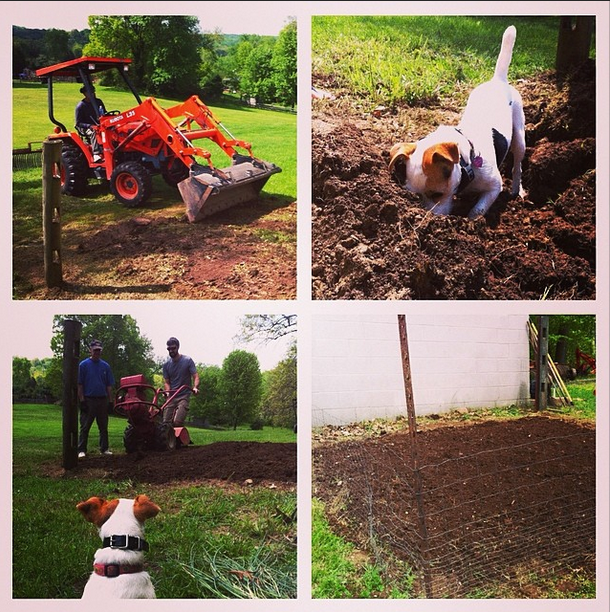Recently a friend asked me some questions about my farm-to-table convictions, so I wanted to share them here. First I’ll start off with another common question I get.
What is Farm-to-Table Cooking? Are you vegan, vegetarian or paleo?
I cook farm-to-table meals. That means for the most part I grow my own food or buy from local farmers who I know and trust. I eat the same things humans have been eating for thousands of years. My diet is rich in fruits and vegetables and supplemented by lean proteins: poultry, fish, eggs, free-range beef and raw milk dairy from cows that are fed a balanced diet of forages. I eat pasta, processed foods and deli meats/cured pork sparingly. In that sense, many of my recipes can be used to follow a paleo diet.
What do you feel is the most compelling reason to shop local farmer’s products?
It’s so important to know who and where your food comes from. It makes you realize the hard work that goes into producing the food and to know that land has been cared for through the years by farmers who genuinely want to see the land preserved for future generations.
It helps you appreciate the entire ecosystem that supports our food system and local economy. Maybe while shopping at Weaver’s Orchard you’ll see the honeybees working and you’ll begin to view bees as precious creatures that make it possible to sustain life instead of as scary pests. Perhaps you’ll even pick up some pollinator-friendly native plants to encourage our diligent friends instead of reaching for a can of Raid.
In Pennsylvania, our farms are smaller and therefore more diverse than in many parts of the country. These farms grow a variety of products, called polyculture farming. This prevents them from attracting specific pests (remember the potato beetle?) and helps keep the soil naturally healthy. By growing a variety of items, they get the chance to rotate their crops, which naturally replenishes the soil instead of using as many fertilizers and pesticides.
Shopping at a farm or farmers market is more relaxing than shopping at a grocery store. Somehow you forget the busyness of life for a moment and take the time to stop and chat, to ask questions, to show concern and to laugh. It’s therapeutic.
Do you have a tip for preparing a farmers market shopping list?
Learn what’s in season when. Shop seasonally. The fresher a product is, the more enzymes will be present. Buy produce in bulk when it’s in season and freeze it. While freezing doesn’t preserve the enzymes, local produce from polyculture farms will have fewer pesticides often than organic monoculture farms. Milk, eggs and meat are always in season, so plan to always buy those items locally. Buy meat in bulk. Many farmers and markets offer bulk specials.
What is an uncommon products do you cook with and how do you suggest/inspire clients use it?
In June, Weaver’s grows black raspberries. Many Pennsylvania natives will light up when you mention these fruits, with fond memories of foraging for them in their childhood flashing through their mind. Unfortunately since wild black raspberries are very susceptible to disease, it’s becoming hard to find these beauties in the wild. Eat them raw, put them in jam or smoothies or in any recipe calling for red raspberries or blackberries. Pick-your-own at Weaver’s Orchard without having to wade through poison ivy and pricker bushes.
In September and October, Weaver’s grows a fruit called a kiwiberry. It looks and tastes just like a kiwifruit except it has a smooth green skin, so you can eat the whole thing without peeling it. Use it in any recipe calling for kiwis (fruit salad, smoothies, sorbets, etc.) Eating a handful a day is excellent for colon health!







